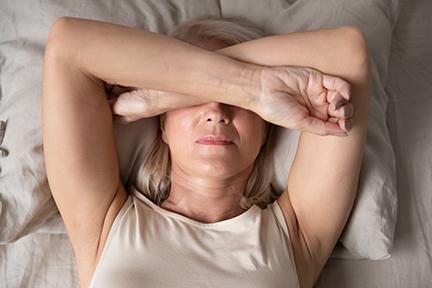
Sleep is one of the single most important activities for a person to complete on a nightly basis, but simply falling asleep isn’t enough. It’s important to ensure that your sleep is deep and restful so that you can gain the most benefits from it.
However, more than 30% of adults report having some symptoms of insomnia regularly, which shows that the overall sleep health of the adult population is not excellent.
By following the below five tips for improving your sleep hygiene, you can enhance your sleep quality and start to improve your overall physical and mental health.
Tip 1: Create a Conducive Sleep Environment
While it may seem like a relatively simple tip, ensuring that you are attempting to fall asleep in a comfortable and dark bedroom is easier said than done. This helps to create a relaxing atmosphere that is conducive to the flow of melatonin. Also, try to reduce exterior noise as much as possible by installing buffers or even just texting your neighbor and asking for some quiet time. Finally, set the temperature in your room to the optimal level at which you know you will sleep best.
Tip 2: Establish a Consistent Sleep Schedule
Your sleep cycle is a regular system of fluctuating levels of melatonin; the more melatonin in your system, the more tired you are. Your body naturally secretes more when it thinks you should be going to bed, meaning if you consistently fall asleep at 2 in the morning, this is likely when you will start to get tired. Establish a regular sleep schedule and try to be in bed before 10 pm on worknights, but consult a sleep medicine specialist if this is proving to be a difficult task.
Tip 3: Limit Screen Time Before Bed
The blue light that is emitted from the screens we use daily, whether that be a smartphone, monitor, or television, interrupts melatonin production. This is because blue light tricks your brain into thinking that it's daytime so it slows the melatonin being secreted. It’s recommended that you cut off screen use at least one hour before bed, but if you really need it then consider turning on a night-shift setting that cuts off the blue light. Choosing to pick up a book instead to relax before bed is always the best option, though, as it completely gets rid of a screen in front of your face.
Tip 4: Manage Stress and Anxiety
There is a large correlation between stress, as well as anxiety, and sleep disorders. Chronic stress can sometimes even lead to sleep apnea or insomnia, which is why finding ways to reduce the stressors in your life is crucial. Before bed, consider relaxation exercises or routines such as meditation, deep breathing, or yoga. These can slow your heart rate and help to calm your mind, thus allowing you to rest deeper. They are only temporary solutions to a larger issue, though, so if there is a chronic stressor in your life that you seemingly can’t identify then consider seeking professional help in getting it addressed.
Tip 5: Avoid Stimulants and Alcohol
The connection between caffeine and a lack of sleep is well-known, yet the majority of people around the world still consume some type of stimulant daily. Caffeine may not even completely leave your bloodstream for 10 hours, in certain cases, though, meaning having a second cup right around noon may have consequences later. For the majority of people, 6 hours is about how long the average dose of caffeine will take to burn off in terms of feeling the effects, so use this timeline when having your next coffee.
A lesser-known connection with sleep, however, is the impact of alcohol. Far too often people swear that alcohol makes them sleep better as it makes them drowsy, but the quality of sleep a person gets when they’ve been drinking is significantly worse than when sober. That’s why it’s best to avoid having a nightcap close to bedtime and to explore other beverage alternatives that won’t impact your quality of sleep.
Give yourself a better night's sleep with actionable steps
The importance of sleep on both your physical and mental health cannot be overstated. By losing a night’s worth of sleep you are only setting yourself up for failure, and a consistent lack of sleep can lead to serious health consequences. Use all of the above tips to address your current sleep habits, but see a specialist as soon as possible if you don’t notice any improvement in your rest.
